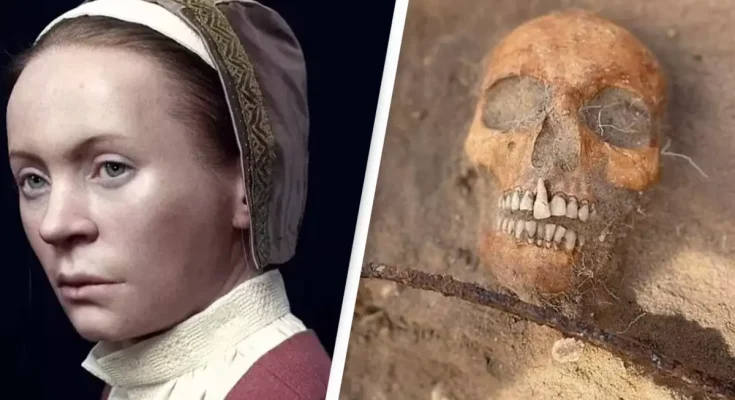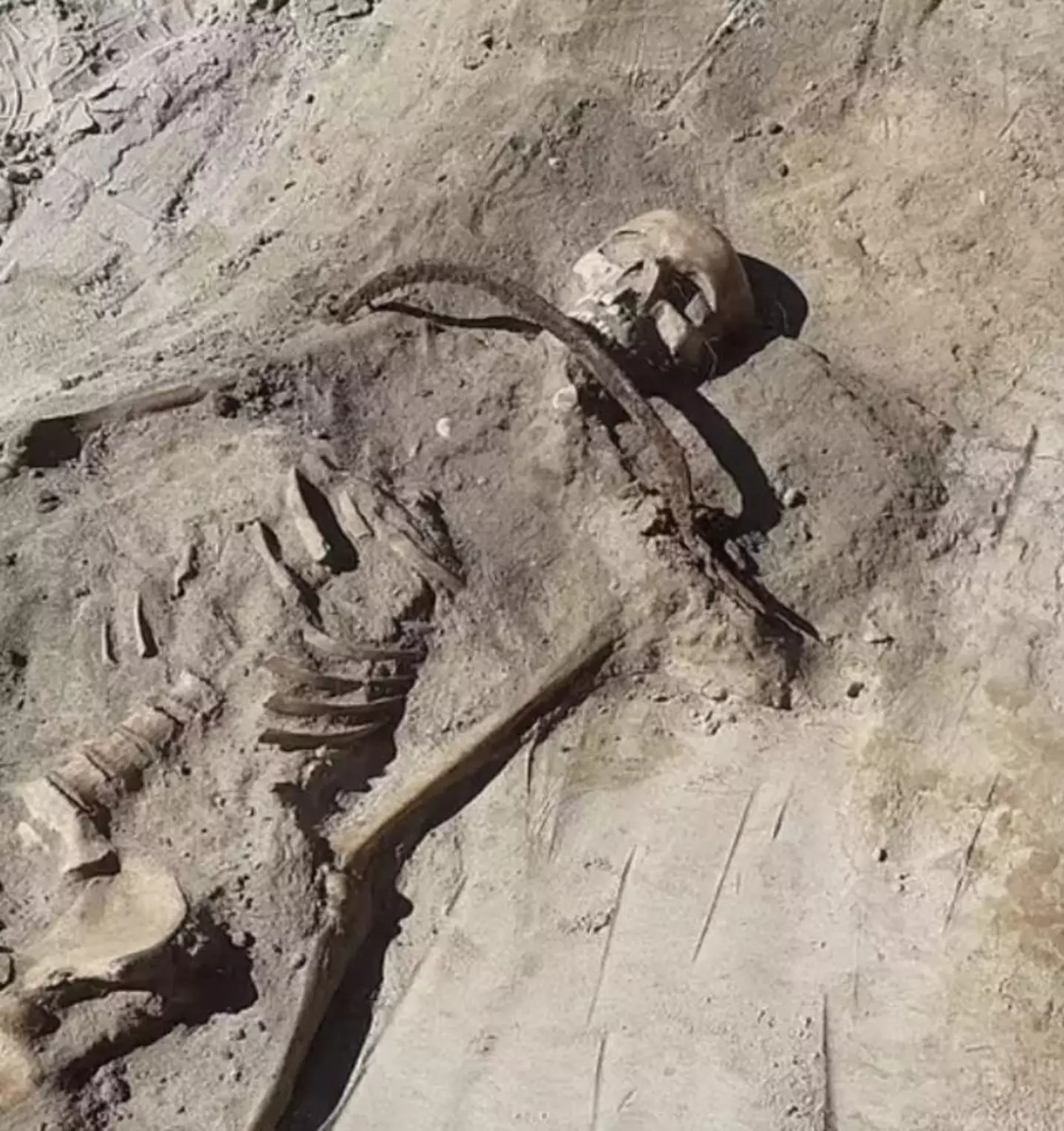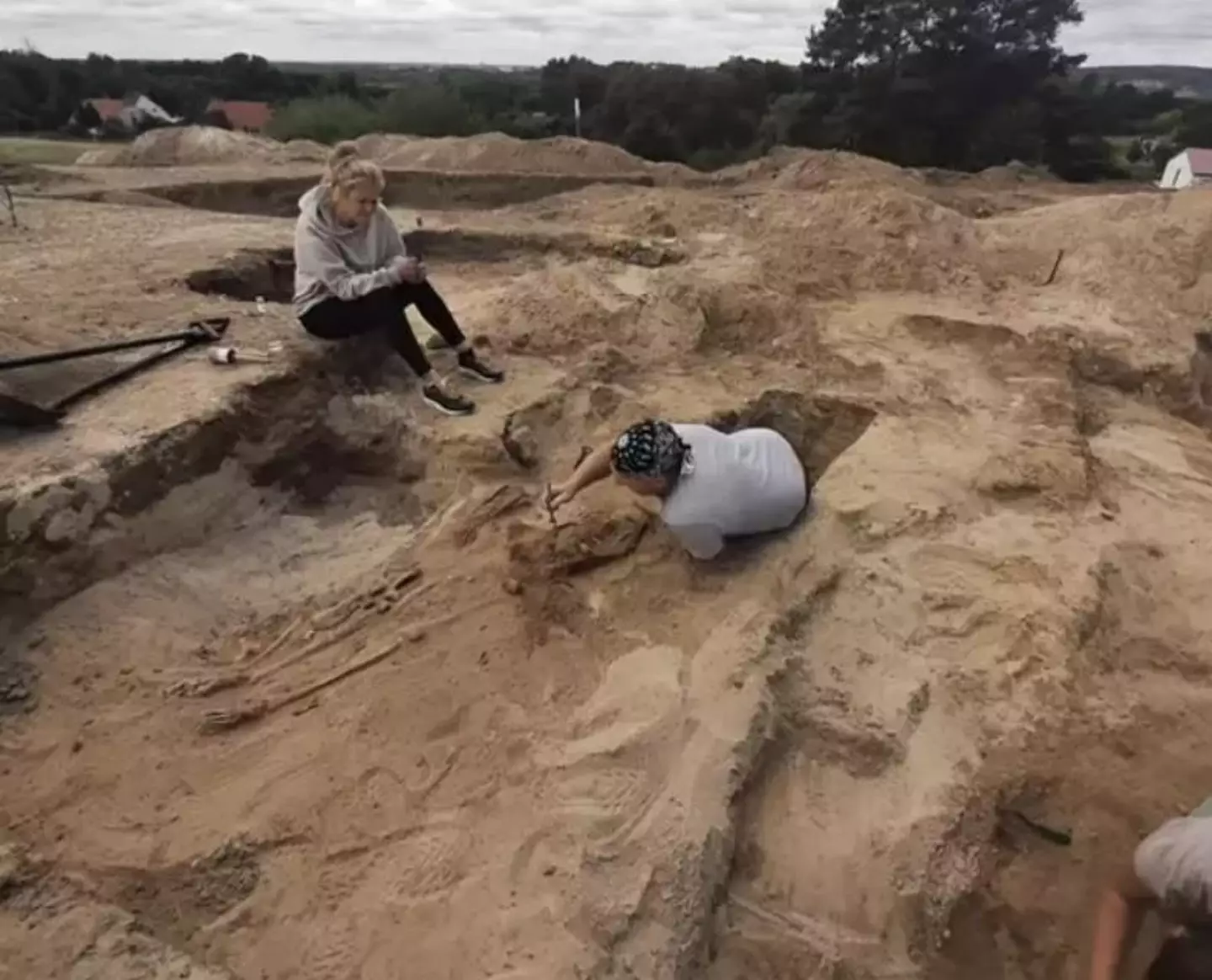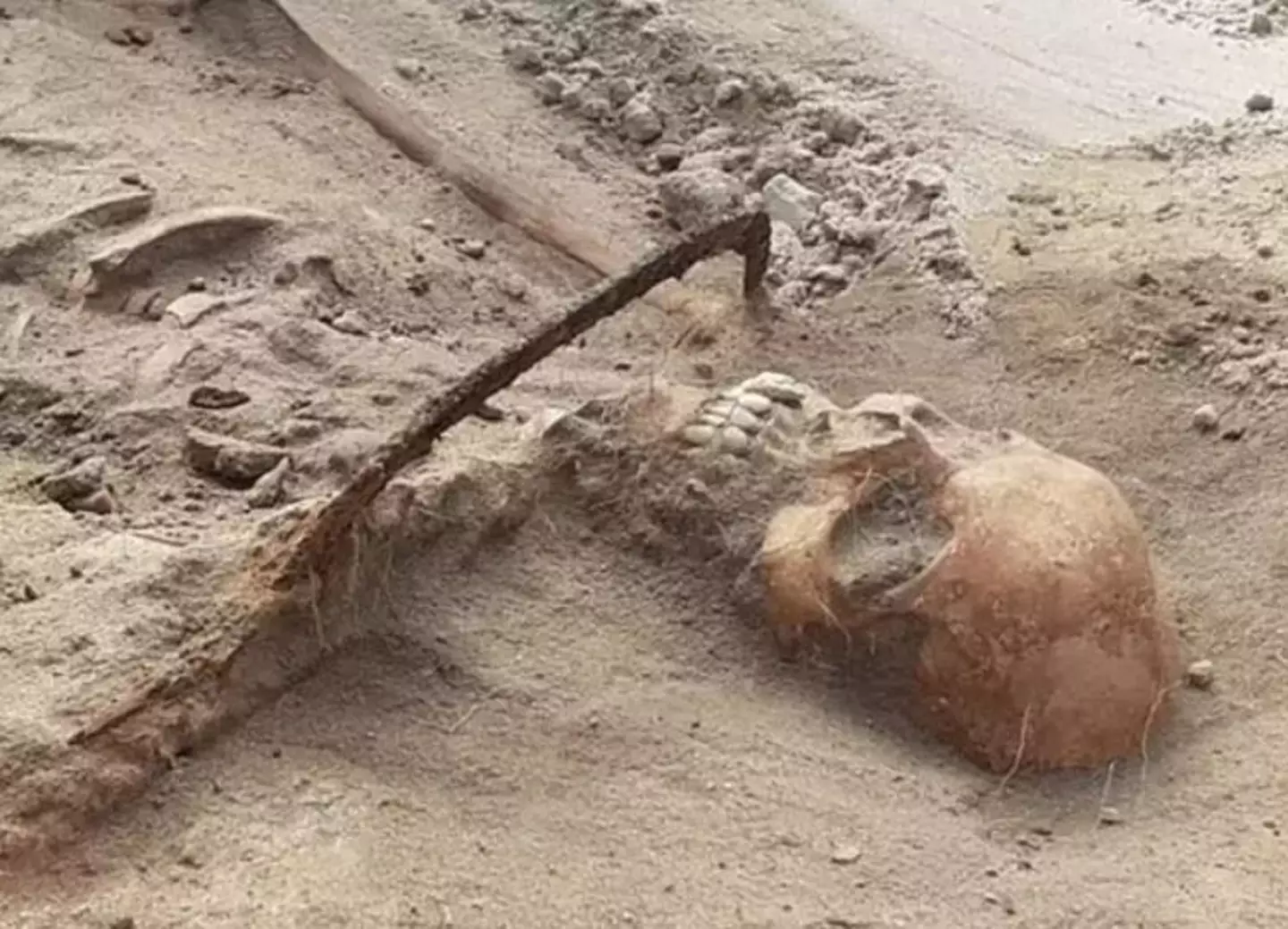A team of archaeologists made a spooky discovery while digging in a cemetery in a village in Poland
It’s one thing coming across a dead body, let alone a body which someone has gone to great and creative lengths to make sure wasn’t able to rise from the ground.
Spooky season is among us and while many of us only spend the month of October and the night of Halloween in particular telling ghost stories, binge watching the Twilight franchise and dressing up as vampires, centuries before us the fear of the sharp-toothed, blood-thirsty predators was felt every day.
In 2022, a team of archaeologists conducted a dig at a 17th-century cemetery in the Polish village of Pien when they made an alarming discovery.
Professor Dariusz Poliński from the Nicholas Copernicus University was digging up an unmarked grave in the cemetery when his trowel struck something.
And no, it wasn’t one of the 206 bones of the young woman who lay beneath, but something much more troublesome.
The woman was discovered with a sickle – a tool with a curved blade, typically used for harvesting crops – over her neck and also a padlock on her big toe.
Researchers say there were signs of someone trying to turn the body over to be face down too, the spine twisted.
And all the evidence pointed to the woman having been buried in a way to prevent her from rising from her grave and subsequently those who buried her believing she was a vampire.
Professor Poliński told the Mail Online: “Ways to protect against the return of the dead include cutting off the head or legs, placing the deceased face down to bite into the ground, burning them, and smashing them with a stone.
“The sickle was not laid flat but placed on the neck in such a way that if the deceased had tried to get up most likely the head would have been cut off or injured.”
He went on to say that the padlocked toe was likely to represent ‘the closing of a stage and the impossibility of returning’.
Although it’s fair to say that vampires are widely accepted as being fictitious these days, this certainly wasn’t the case across 11th-century mainland Europe, where it was feared the dead would rise again and terrorise the community.
The most common method people used to ensure a suspected vampire wouldn’t come back to life was to hammer a steak through their skull to ensure they stay dead.
However, a sickle around the throat doesn’t always mean the deceased is suspected of being a blood-sucking predator.
Around 130 miles away from Pien in the village of Srewsko, the remains of several men were found also with a sickle against their throats.
The researchers said back in 2015: “When placed in burials they were a guarantee that the deceased remained in their graves and therefore could not harm the living, but they may also have served to protect the dead from evil forces.
“According to folk wisdom, a sickle protected women in labour, children and the dead against evil spirits. It also had a role in rituals designed to counter black magic and witchcraft.”






